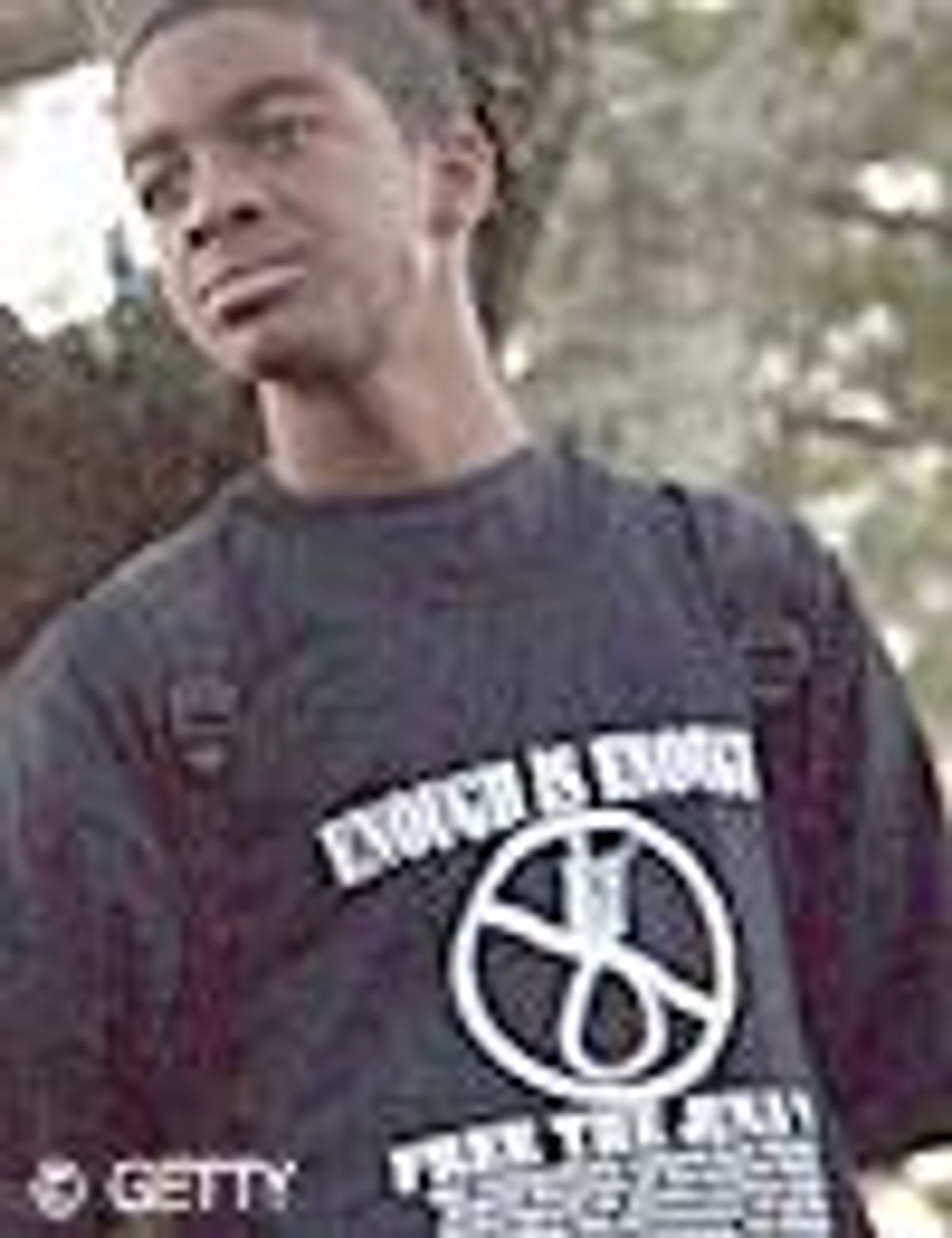On Thursday, I
too will be in Jena, La., to stand with the thousands of
national civil rights activists and other people coming
together in the name of justice and fairness. This
rural town of 3,000 residents in central Louisiana has
captured national and international attention since
long-simmering racial tensions exploded in a series of
violent confrontations between African-American and
white teenagers at Jena High School. The charged
situation comes to a boil today.
The tragic story
begins last year, when a freshman at the high school, an
African-American, asked the school's principal during
a school assembly if African-American students had
permission to sit underneath the "white
tree," a shady oak on school grounds where white
students frequently congregated. The principal replied
that the African-American students could sit wherever
they wanted. However, the next day, three nooses -- in
the school's colors, no less -- were found dangling
from the tree, making an obvious reference to our
country's long history of racial intimidation
through heinous lynchings.
Recognizing the
seriousness of this incident, the school's principal
expelled the white students responsible, only to have his
decision overturned by the school board and
superintendent, who dismissed the incident as a
"prank." The offending students were allowed
to return to school and punished only with three days
of in-school suspension.
In response to
the superintendent's decision, a group of
African-American students staged a lunchtime protest
on campus, demonstrating their opposition to the
school's racial status quo by physically occupying
the tree. Then the superintendent called an
emergency school assembly, at which the town's
law enforcement officials appeared in full uniform and
threatened protest leaders.
As tensions
mounted, racial fights broke out at the school and
off-campus. In one notable incident an African-American
student was assaulted and hit with a beer bottle at a
party attended mostly by whites. In return, six
African-American students beat unconscious the white
student who had allegedly taunted the victim at the party.
But although the white student was sent to the
hospital and released the same day, the six
African-American students -- who have come to be known as
the "Jena 6" -- were arrested and charged with
attempted murder. Five of the six teenagers were
charged as adults.
The first student
to stand trial, Mychal Bell, a 16-year-old sophomore
and school football star, faced felony charges of aggravated
assault and conspiracy. Even though Bell faced a
possible sentence of 20 years in prison, his
court-appointed lawyer called no witnesses in his defense
-- and last June, Bell was convicted before a white judge
with an all-white jury. Last week, in part because of
growing media attention to the case, an appeals court
overturned Bell's conviction; however, he still
remains behind bars, thanks to a prohibitive bond. Charges
for three of the other students have been reduced to
aggravated battery.
Before his
conviction was overturned, Bell was scheduled to be
sentenced today. Now the day has become one for a
different kind of action, with some 40,000 people
expected to descend on Jena to protest what's
happened.
When you consider
the details of this case, it's utterly shocking to
think that the story of the Jena 6 is taking place now --
that it's not a horror story from 40 years ago.
Still, as gay, lesbian, bisexual, and transgender
people know well enough, the struggle for justice and the
equal treatment for all Americans remains an ongoing
one.
The real story of
the Jena 6 is not just about the dramatic showdown
between African-American residents and white authority
figures in a small, rural Southern town. It is about
how in our country, even today, certain members of our
society continue to be subjected to blatant prejudice
and denied the assurance of fair and equal treatment by our
legal and judicial process.
The story speaks
to the real threat of the powerful to use their
influence and narrow, discriminatory view of society to
further marginalize those whom they consider to be
weaker or "other" than themselves. Those
blacks. Those gays. The hope is that if "they"
would not make a big deal out of the obvious
injustices occurring to them and just accept things
the way they are -- and, implicitly, are supposed to
be -- then the "problems" will just go away
and "normal" life will resume. But we
know that injustice of any kind, be it in the form of
workplace discrimination, hate crimes, or unequal
sentencing, is never something that we can stand by
and casually accept.
That's why
on Thursday the Human Rights Campaign will be in Jena,
standing shoulder to shoulder in solidarity with our
coalition partners in the civil rights community,
calling for the equal treatment for these young
victims of discrimination. There is no other place I
would rather be than there, showing our support. Together,
black, white, straight, LGBT, we will let our voices
be heard. The message will be loud: We won't
tolerate discrimination anywhere.
Payne is associate director of diversity at the
Human Rights Campaign.

















































































